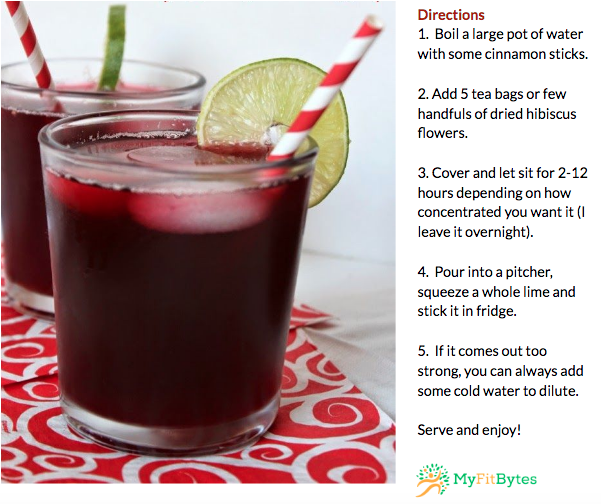Hibiscus or Hibiscus sabdariffa has been used all over the world to treat a wide variety of illnesses and conditions with strong held beliefs in its power by many cultures.
You’ve probably spotted the tropical hibiscus flower as its iconic to every tourist who goes on a Hawaiian vacation. In traditional Hawaiian traditions it symbolizes relationship status if worn behind the left ear- basically the modern day equivalent of “facebook official”.
It is also used by various cultures around the world as both a delicious drink and a potent medicine.
The medicinal and recreational uses of the Hibiscus plant varies depending on what part of the world is being consumed.
Today I will uncover three health benefits linked to drinking Hibiscus tea – all backed by science.
The main studies that have been conducted on the health benefits of Hibiscus plant have been on how effective hibiscus is to lower blood pressure. Research has shown it is as effective as the commonly prescribed drug captopril.
A 2015 study with 390 participants showed that drinking 8 ounce of hibiscus tea 3 times a day, substantially lowered both the systolic and diastolic numbers of participants blood pressure compared to the placebo.
This flower is also packed with ascorbic acid or vitamin C making it a way better sugar-free option compared to orange juice to boost your immunity during cold season. Vitamin C can also help increase how much iron absorbed from food, so pair it with your favorite spinach salad!
One 8 ounce glass of hibiscus tea has about the same vitamin C as a small orange.
The chemical characteristics of Hibiscus plant also suggest it can promote an emmenagogue effect- meaning it stimulates menstrual flow – and help women with irregular periods.
While this could be helpful for women with irregular periods. it should be avoided during pregnancy as it can induced premature labor.
The flower has been used in Ayurvedic medicine as a hormone balancer to reduce menstrual cramps, mood swings and cravings, although there are no conclusive studies published yet.
One of the most promising areas of recent research of Hibiscus is in cardiovascular health. In Iran, is traditionally used as a cholesterol treatment.
Science has confirmed that constitutes in the deep red calyxes of hibiscus exhibits potent antioxidant activity and exert beneficial effects on blood pressure and cholesterol.
A clinical trial with type 2 diabetes found hat it lowered blood pressure and increased high-density lipoprotein (HDL) or “good” cholesterol, although no conclusive results on lowering (LDL) or “bad” cholesterol.
Hibiscus tea or Agua de Jamaica is popular drink in the United States, available from cultural traditions of Mexico and parts of Central America. When brewed as a tea the flower produces a deep rich raspberry color and a slightly bitter flavor- think light cranberry.
The best way to prepare hibiscus is in tea form. You can buy the tea bags or you can purchase the dried flowers in bulk.

Hibiscus is a slight diuretic, so for those using prescription diuretics should use sparingly. High doses of Hibiscus may be toxic to the liver, so its best to stick with the tea method of preparation. Avoid if pregnant for its menstrual stimulating effects.
Agua de Jamaica is a delicious and refreshing cold tea that will eliminate the need for a sweet beverage on a hot summer day. The plant is a good source of vitamin C for prevention of winter flu.
The potential cardiovascular and menstrual benefit makes this plant a must have all year round, for both children and adults to enjoy. Hibiscus tea is a delightful sugar free beverage that has many possible flavor variations and is sure to quench your thirst while bringing many medicinal opportunities.
New York
118-35 Queens Blvd Suite 400
Queens, NY 11375
Florida
601 Brickell Key Dr, Suite 700
Miami, FL 33131
weecd






To request an appointment using our website, please complete the form below. After you submit this information, a representative will contact you by phone within two business days. If you have a medical emergency, dial 911.